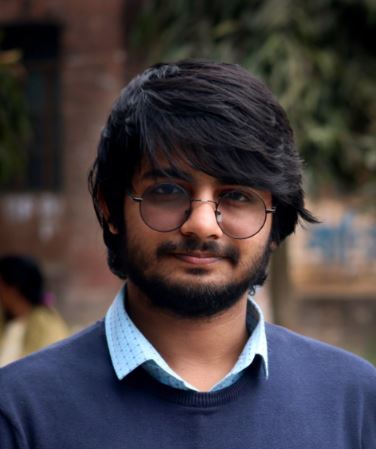The Bangladesh government is making more requests to tech giants to remove inappropriate content. To avoid confusion, the government has recently begun collecting user information from social media accounts. Reports from Meta, Facebook’s parent company, reveal a steady increase in requests from the Bangladesh government since January 2023, surpassing those from other countries this year.
You Can Also Read: South Asia’s Water Scarcity Nightmare Tops Global Concerns
Why Spreading Propaganda using Social Media?
The remarkable achievements of Bangladesh under the leadership of Sheikh Hasina’s Awami League government have drawn the ire of certain groups. Consequently, these groups, in collaboration with some international powers, are attempting to hinder the country’s progress. With the upcoming 12th National Assembly elections on January 7, 2024, opposition parties are resorting to spreading misinformation through social media to mislead the public. The deliberate presentation of false information has become a significant cause for concern.
BNP-Jamaat’s Propaganda
In times of uncertainty, people seek the truth, but rumors often proliferate rapidly. Recent instances of political unrest involving BNP, Jamaat, and other opposition parties setting vehicles on fire across the country have led to the spread of damaging rumors. This is not an isolated incident, as historical events like the Shapla Chattar incident in Dhaka in 2013 and rumors surrounding the alleged hanging of Sayedee have also contributed to misinformation and chaos.
Rumors of human sacrifice during construction projects, such as the Padma Bridge, have fueled unnecessary panic and deteriorated law and order. Social media platforms, especially Facebook, are often used to disseminate such rumors, causing widespread miscommunication and chaos throughout the nation. It is evident that deliberate rumor spreading, driven by political, religious, or other motives, exacerbates the situation and poses a serious challenge to maintaining social order.
Concern about Propaganda Spreading
Meta and Bangladesh have been working together on information to stop propaganda spreading through social media very consciously, for a long time. But rumors can be damaging for the society.The entire nation will experience chaos if even a single rumor becomes an epidemic.
Expert Opinion

Assistant Professor
Department of Journalism and Media Studies
Jahangirnagar University
Savar, Dhaka 1342
Spreading rumors using social media especially Facebook is a threat to national security and the country’s development, how? Is it possible to stop the rumors only by controlling social media accounts? Your opinion, please!
Firstly, misinformation may not pose a threat to national security or hinder the country’s development unless it contains content detrimental to society and a significant number of people accept and subsequently act upon it. If a piece of misinformation meets these three criteria, it becomes a genuine concern. The process of misinformation production and dissemination in Bangladesh has been ongoing since 2012, primarily driven by digital media, including prominent social media platforms like Facebook. Three key factors, among others, contribute to this phenomenon: the scope of anonymity offered by digital media, the rapid spread of information through cyberspace, and the ability to reach a large audience in a short period. These characteristics make digital media highly susceptible to misinformation, empower those who produce misinformation, and render the networked public vulnerable. Given that a significant portion of the country is now part of this digital network, the potential reach and impact of a piece of misinformation are considerable.
In this age of scientific excellence and technological advancement, people can accomplish almost anything except shielding themselves from deception. Researchers and scientists have been continuously working for at least the past decade, developing hundreds of techniques, models, and tools. Despite these efforts, misinformation persists, and nothing has proven entirely effective in preventing it thus far. Countries worldwide have implemented various measures to curb misinformation and its negative consequences, yet it remains prevalent. Consequently, I doubt the existence of a single, effective solution to prevent misinformation. Moreover, I do not believe that controlling social media accounts (which could be related to free-speech and privacy as well), as you are suggesting, could be a viable solution for addressing the issue.

Assistant Professor
Department of Film and Media Studies
Jatiya Kabi Kazi Nazrul Islam University
Spreading rumors using social media especially Facebook is a threat to national security and the country’s development, how? Is it possible to stop the rumors only by controlling social media accounts? Your opinion, please!
The problem becomes apparent when people believe a Facebook rumor without verifying it. Because many Facebook users in our country do not have the awareness to verify rumors. Rumormongers take disadvantage of their unawareness. We have already seen many cases of spreading rumors about religious issues and pushing people to violence. Many times, a picture or video of another country is being falsely propagated as an incident of our country. The pre-election period is more sensitive. Because this time a group chooses social media to spread rumors and mislead people.
I think the most important thing in this case is to disprove the rumor mongers by spreading the truth. Also, the accounts or pages from which such rumors are being spread purposefully should be identified.
Meta and Bangladesh on information to prevent propaganda
In its recent report, Meta disclosed information about countries seeking user account details and social media content for security reasons. Bangladesh ranks among the top countries, making around 1454 requests (according to Meta’s Transparency Center) this year. Meta emphasizes its commitment to responding to these requests in accordance with legal standards and its service terms. Each request undergoes meticulous review for legal validity, with some potentially rejected or needing further clarification if deemed overly broad or vague.

From January to June there have been requests for 1454 accounts (32 emergency) information and from July till now it has been counted to more 772 (68 emergency)accounts. In the first half of the yearMeta has provided with 67.21% of the account’s information and in the next half of the year the company has provided with 64.83% of the information on the requested accounts.

On the other hand, last year the number of information request by the government of Bangladesh from January to June were 271 and from July to December it was counted to 525. In response, Meta provided 50% and 66.86% of the information to the government respectively.
Intending to help Bangladesh government with preventing of propaganda spreading, Meta has been helping by providing information within its authority. And restricting accounts or contents as needed.
On request of the Bangladesh government in the first half of the year (January to June) only Meta has restricted 2,270 social media contents. This has been the highest ever record for the country in a six-month period, as per Meta.
Conclusion
Establishing robust monitoring systems, partnering with fact-checking organizations, and enforcing appropriate restrictions on accounts spreading rumors can collectively enhance the security of Bangladesh’s digital landscape.
Moreover, Meta’s support for public awareness campaigns and the promotion of media literacy aligns to empower users to assess information critically and bolster community resilience against deceptive narratives. As the collaboration between Meta and Bangladesh advances, maintaining a dynamic and adaptive approach becomes crucial, necessitating continuous reassessment of strategies to stay ahead of evolving challenges in the ever-changing social media landscape. Ultimately, the success of these efforts relies on sustained cooperation, technological innovation, and a shared commitment to building a trustworthy and responsible online ecosystem in Bangladesh.


